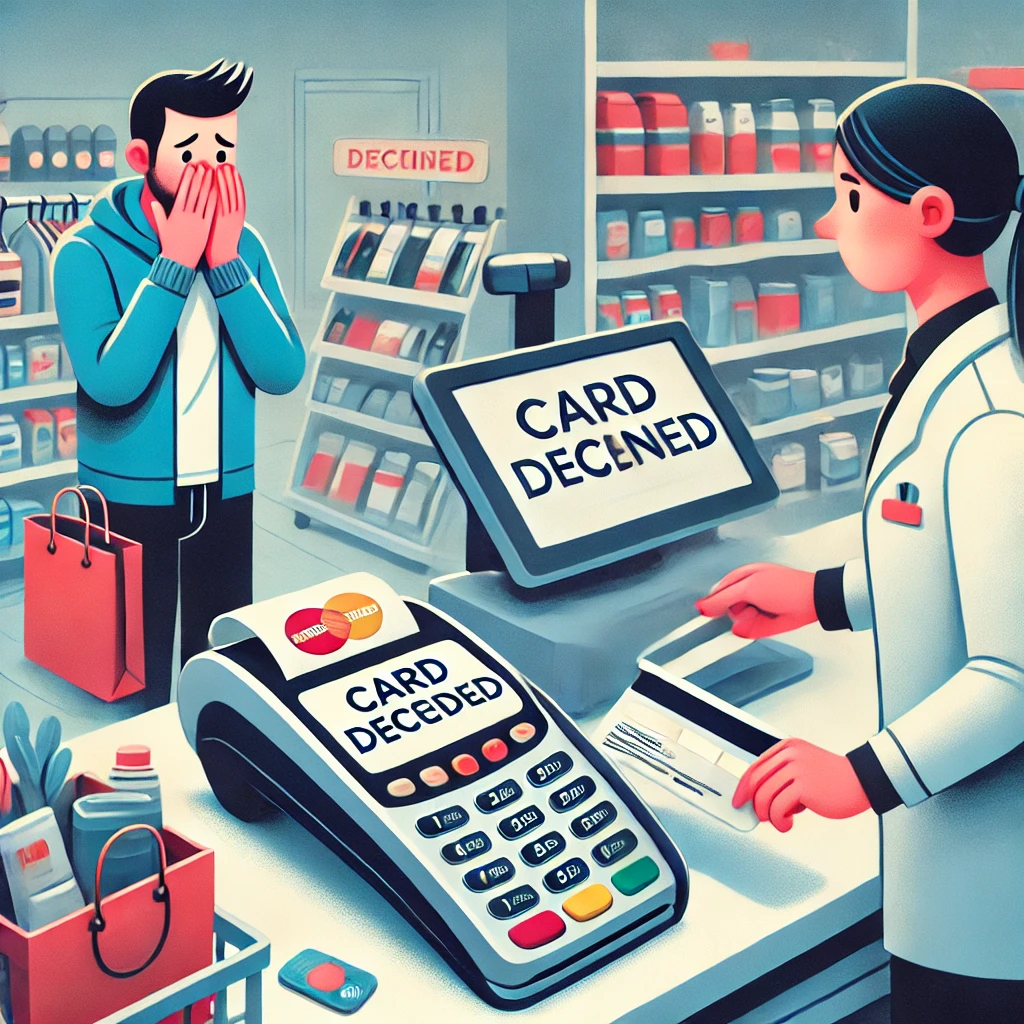
In life, we often encounter situations that can be interpreted in various ways. One such situation is having your credit card declined during a transaction. It can be easy to slip into a negative mindset and feel embarrassed, but with a bit of reframing, we can view the situation from a neutral, more balanced perspective.
The Negative Perspective: “This is so embarrassing.”
When a credit card is declined, our initial reaction might be to feel embarrassed or humiliated, especially if there are other people around. This response is natural; our minds tend to amplify negative thoughts, making the situation seem worse than it is. We might worry about what others think or feel judged. These thoughts can spiral, making us anxious and stressed about a relatively minor event.
The Neutral Perspective: “The credit card was declined.”
Reframing the situation to a neutral perspective involves taking a step back and looking at the facts without the emotional baggage. In this case, the simple fact is: “The credit card was declined.” This statement does not imply judgment or embarrassment; it merely states what happened.
By focusing on this neutral perspective, we can detach ourselves from negative emotions and think more clearly about the next steps. There are many reasons why a credit card might be declined—insufficient funds, a technical error, or a security measure from the bank. None of these reasons reflect on our personal worth or social standing.
Practical Steps to Reframe Your Perspective
- Pause and Breathe: When faced with the initial embarrassment, take a deep breath. This can help calm your nerves and prevent immediate negative reactions.
- Assess the Situation: Look at the situation objectively. Ask yourself what exactly happened without adding emotional weight. “The credit card was declined” is a fact. It’s not a statement about you as a person.
- Problem-Solve: Focus on resolving the issue rather than on the emotional impact. You could try another form of payment, check your account balance, or contact your bank to understand why the card was declined.
- Maintain Perspective: Remember that everyone faces similar situations. A declined credit card is a common occurrence and not a reflection of your character or financial acumen.
- Learn from It: Use this as an opportunity to learn. Maybe you need to keep a closer eye on your account balances or ensure that your credit card information is up to date.
The Benefits of a Neutral Perspective
Adopting a neutral perspective helps reduce stress and anxiety associated with negative interpretations of events. It allows us to handle situations calmly and rationally, leading to quicker resolutions and a more positive outlook. By reframing our thoughts, we build resilience and improve our overall well-being.
In conclusion, while a declined credit card can initially feel embarrassing, reframing the situation to focus on the neutral fact can significantly alter our emotional response. By acknowledging the simple truth—”The credit card was declined”—we can navigate the situation with clarity and composure. This practice not only helps in specific instances but also strengthens our ability to handle various challenges in life with a balanced and positive mindset.